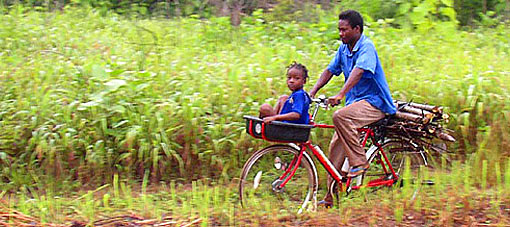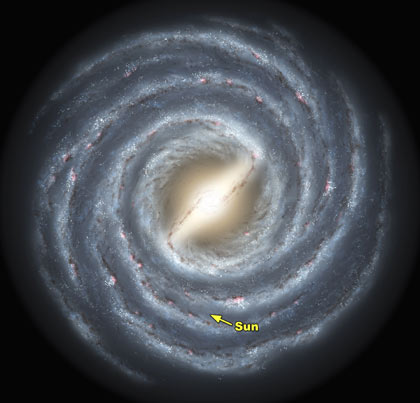You are hereHealth & Lifestyle
Health & Lifestyle
Peru, one of poorest countries with 30% population living <$2, 10% <$1 a day, to plant 40 million trees by Feb '20

To mitigate climate change, Peru, one of the poorest countries with 30% population living under $2, 10% under $1 a day, is planting 512,820 trees daily to capture more than 570,000 metric tons of carbon dioxide annually. Who’s next?
Astounding poverty
Peru is one of the poorest countries in the world with 30.6% of its population living under 2 dollars a day, 10.5% under $1 dollar a day;
Astounding goal
Peru has launched a nationwide tree-planting project to plant 40 million trees by Feb. 2020 to capture more than 570,000 metric tons of carbon dioxide annually.

(quote)
In an attempt to mitigate climate change, the Ministry of Agriculture of Peru has launched a nationwide tree-planting project with the astounding goal to plant 40 million trees by Feb. 20 to capture more than 570,000 metric tons of carbon dioxide annually, El Comercio reported Friday.
Mastery of Winter. Onto ice are skaters, swan, crabapple tree, children & sculptures at International Ice & Snow Show

(quote)
People visit ice sculptures for the 25th Harbin International Ice and Snow Festival in Harbin, China on December 23, 2008.
The Harbin International Ice and Snow Sculpture Festival, in Harbin, China, opened on Jan. 5, 2009. The festival lasts for one month, and features large ice and snow sculptures, ice lanterns, swimming in the icy Songhua River and more. The northern hemisphere is a hospitable place for ice festivals these days, so in that spirit, here is a collection of recent photographs of all things frozen, and some of the ways we live and play with ice.

A swan attempts to land on a frozen lake near Castleford northern England Monday Jan. 5, 2009. Freezing temperatures and snow have struck large areas of Britain.

Visitors slide on tracks at an ice sculpture during a preview for the 25th Harbin International Ice and Snow Festival at a park in Harbin, China on December 23, 2008. read more »
Bikes incl. wooden bikes help break poverty trap - many Africans spend 4 hrs/day walking, 1/4 income on transport

(quote)
Many Africans spend 4-hours per day walking, or 1/4 of their income paying for transport. A bike can save this every day, helping to break the poverty trap.

Wooden bikes are fairly common in Rwanda and they’re used pretty much daily for transportation of goods and people. Tom Ritchey got the bright idea that the bikes should be raced as well and now the annual Wooden Bike Classic draws curious tourists from around the world for a chance to watch (and even participate).

The goals of Project Rwanda are pretty simple and they all come back to cycling: building awareness for the country (through events like the Wooden Bike Classic), specialized bike design (real steel bikes for transporting coffee crops), bike distribution, and national pride (through support of the Rwandan National Cycling Team).
Lewis Gordon Pugh, real and very 1st person to swim at North Pole? Astonishing! Earth has fever?

(quote)
I am passionate about swimming and I enjoy pushing boundaries. But there's a lot more to it than that. Through my swims I have had a unique perspective on climate change. I have witnessed retreating glaciers, decreasing sea ice, coral bleaching, severe droughts, and the migration of animals to colder climates. It's as a result of these experiences that I am determined to do my bit to raise awareness about the fragility of our environment and to encourage everyone to take action.
But I've not always been in swimming trunks. I studied law at the University of Cape Town and the University of Cambridge, and then went on to work as a maritime lawyer in London. I now spend much of my time public speaking and lobbying world leaders to protect the environment.

Dear Friends
Forget about future generations. This is about us.
For many years, I've been known as a swimmer and an environmentalist. I've used my skills in the water to draw attention to disturbing changes in our oceans. Last year I undertook the first swim at the North Pole to raise awareness about the melting of the Arctic sea ice. It is happening quicker than anyone predicted. read more »
Solar system moving 100000 mph faster than thought; 15% speed increase translates to doubling of mass of Milky Way

(quote)
It turns out that our solar system is moving nearly 100,000 m.p.h. faster than previously thought — revolving around the center of the Milky Way at 568,000 m.p.h., announced Mark Reid of the Harvard-Smithsonian Center for Astrophysics on Monday at the American Astronomical Society's conference in Long Beach, Calif. Since velocity is related to mass, the 15% increase in solar-system speed translates into a near doubling of mass of the Milky Way, according to Reid's group — and all of that newfound bulk is composed of dark matter.

Original estimates of the solar system's speed were based on what Reid calls "one- dimensional velocity" obtained solely from Doppler shifts. "Now," he says, "we have three-dimensional velocity and more exact measurements" — a huge advancement in the field. The findings debunk the notion that the Milky Way is a little-sister galaxy to her neighbor Andromeda. "They're more like fraternal twins," Reid says. And the fact that they are of equal size increases the likelihood that the two will someday collide.
But humans needn't flee the galaxy anytime soon. First, there's so much room between stars that Earth likely wouldn't feel any effects of a galactic collision, though our constellations would certainly change. And second, a crash is still about 3 billion to 5 billion years away, by which time our sun will have transformed into a red giant and turned the Earth into a smidgen of charred dust. read more »
135 countries committed to International Year of Astronomy 2009: "The Universe, yours to discover." Began on 1 Jan

(quote)
Stargazers around the world are busy preparing for the International Year of Astronomy. A staggering 135 nations are collaborating to bring the Universe closer to Earth. Events and activities will take place over the coming 365 days and beyond, in a spectacle of cosmic proportions.
The International Year of Astronomy 2009 (IYA2009) has been launched by the International Astronomical Union (IAU) and the United Nations Educational, Scientific and Cultural Organization (UNESCO) under the theme, "The Universe, yours to discover". Thousands of IYA2009 events are described on the national websites, as well as on astronomy2009.org, and a few of the global projects are listed here.





















